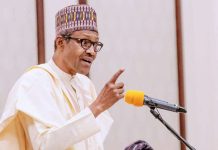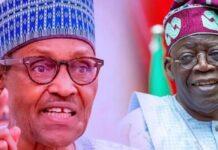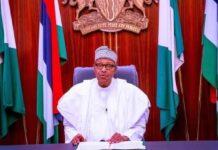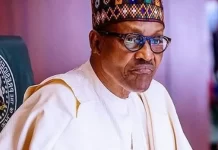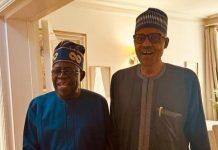
Against the background of the determination of the Federal Government to regulate the use of the social media platforms by Nigerians COLLINS NNABUIFE looks at the gains and the challenges posed by the platform amid call for caution on the part of government.
Nigerians, like nationals of other countries, have continued to enjoy the benefits that the social media offer since the advent of such platforms like Facebook, Youtube, Myspace, Twitter, WhatsApp, LinkedIn, Instagram, among others, especially as it was discovered that these platforms make news dissemination easier and faster. Everyone suddenly transformed into a reporter as long as such a person can afford a smart phone and mobile data.
Soon after, the social media became the hub of business and social services, as business and service providers moved their trades online once they realised they could reach a wider audience and clients through those platforms. Thus the social media became not just a market place where goods and services are gleefully traded, it is also seen as a social gathering where banters are exchanged among friends. Interestingly, also, the social media platforms have also been deployed for less than noble initiatives by some users to purvey salacious information.
But since the inception of this government, efforts have been made to regulate what Nigerians post on social media. The government believes that the social media, if not regulated, has the capacity to cause chaos which could lead to breakdown of law and order, especially owing to the fact that the social media is the platform mostly being deployed for virulent criticisms of government activities.
Perhaps what has re-fuelled government’s desire and echoed by some politicians is the recent #EndSARS protests and how the young people behind the protests had used the social media to organise themselves into a massive, formidable opposition to government’s bad policies. Though the government spokesperson, Mr Lai Mohammed, claimed that government’s desire to regulate the social media is because of the fake news emanating from it, most media stakeholders believe officials of government see the social media as a threat, having technically emasculated the traditional media by denying it patronage. It is believed that the government itself as a beneficiary of social media’s influence, which it used effectively to win the 2015 presidential election, should not turn around denouncing the same platform it employed for its own benefit using the instrument of propaganda, among others.
Social Media: The good, bad and gly
Dorathy Njemanze the Executive Director of Dorathy Njemanze Foundation, said the social media is the only platform Nigerians express themselves.
“Regulating the social media is a move to bring in dictatorship in Nigeria and remove the democracy. The beauty of democracy is the ability for everybody to be able to express himself or herself, and where people are unable to express themselves because the government is scared of its ineptitude being brought to the limelight, then the right of the people to express themselves freely has been removed from them and dictatorship has set in. That’s the first part of it”, Njemanze said.
She said the Lekki massacre during the EndSARS protests was an evidence that Nigeria needs the social media because it was through the medium that the people were able to present the true story.
“The Lekki massacre is an evidence that Nigeria needs social media. Where government institutionalised systems deliberately crumble when human rights need them, it behoves on us to uphold the ones that we can hold onto and tell our stories ourselves. Let them bring us anywhere to defend the integrity of our stories; we are happy to defend the integrity of our stories. But our voices should not be shutdown,” She stated.
Speaking on negative influences of the social media, Zubairu Atta, a media expert, agreed it could be an adjunct of cyber warfare, depending on where it is coming from, “and we know that it carries elements of disinformation, propaganda and things like that, so it takes a responsive country which is made up of the government and the populace who collectively make up the society to find ways of regulating them based on security issues.
“I take example from what happened during the Ebola scare and during the COVID-19 pandemic. Nigeria managed the Ebola situation well especially in terms of information management, so I was surprised we could not manage that in terms of COVID-19 and the #EndSARS.
“ So, those are some of the negative, but the good thing is that it is now easier to acquire information, share information and ideas faster”, adding that indeed it is the responsibility of government to ensure the safety of the country and attack any threat to national security.
“I do not detract from the fact that government needs to take proactive measures as a national security issue. All over history, there is no government that is not scared of information and how it is managed when it comes to national security. They can manage it for their own good, they can manage it and use it for whatever thing because they have the monopoly of state instrument.
“But the government needs to be careful. We need to be extremely cautious and have stakeholders dialogues in order to come out with solutions”.
What the Telecoms companies are saying
But for the stakeholders, the issue of fake news in the social media has to be tackled. According to the President of Association of Telecommunications Companies of Nigeria (ATCON), Mr Olusola Teniola, regardless of the benefits of the social media as a source of disseminating information, job creation and many more, the way some individuals deploy it to purvey fake news and damage characters is worrying.
“The internet is meant to be used for good not only in terms of dissemination of information but also to ensure that we can reach our loved ones, that we can create jobs and we can be able to use it during emergency. However, it is very disheartening that the focus on social media during COVID-19 and especially during the recent uprising has left a platform for negativity”, Teniola noted.
He, however, pleaded with the government, civil society organisations and the youths to see the internet as a platform to develop humanity and not otherwise.
Teniola said ATCON is waiting for the hearing of the social media bill so that it can make contributions on the effectiveness of social media to ensure that the nation’s democratic values are upheld.
“We appeal to government, civil society organisations, academia and the youths in particular, to use the platform that is provided for good, so that we can develop humanity for the better and not destroy humanity using the platform.
“So, we await the public hearing on this bill and to discuss how we can contribute to the effectiveness of social media, using Artificial Intelligence and other technologies to ensure that our democratic values are upheld and we build a nation for the future and not a nation that is destroyed.
“We are very much aware and we know that the issue around digital economy will mean that such technology will need to be taken into consideration as we develop our networks to ensure that freedom of speech is upheld , factual and doesn’t allow people to use the platforms in a negative way”, he added.
Can NASS be trusted on Social Media Regulation?
The Anti-social Media Bill was introduced in the Senate of the Federal Republic of Nigeria on 5 November 2019 to criminalise the use of the social media in peddling false or malicious information.
The original title of the bill is Protection from Internet Falsehood and Manipulations Bill 2019. It was sponsored by Senator Mohammed Sani Musa from the largely conservative northern Nigeria. After the bill passed second reading on the floor of the Nigeria Senate and its details were made public, information emerged on the social media accusing the sponsor of the bill of plagiarising a similar law in Singapore which is at the bottom of global ranking in the freedom of speech and of the press. But the senator denied that he plagiarized Singaporean law.
Therefore, for some Nigerians, the copy and paste origin of the Nigerian social media bill is already an indication that those behind have ill motives that will bode well for Nigerians. He argued that the Nigerian constitution has sufficiently dealt with the havoc the social media can wreak through some other laws it contains.
According to Atta, when it comes on deliberation on social media regulations, the National Assembly cannot be trusted. He said if a plagiarised bill could be presented and debated in the National Assembly to the extent that they were unable to remove the name of the country they copied the bill from, then they cannot be trusted
“I am not an advocate of having a specific social media bill which seeks to regulate it, because I do not trust the National Assembly or the propagators on the government side or the private sector side for this social media bill. And it is not because they do not have the capability or capacity, but I am worried about what their motivation is over the bill. So I don’t trust them.
“ For me, if I can receive guarantees that this thing will go through a proper democratic process, and it is open and transparent, then we discuss and debate it.
“ I agree that there are representatives particularly at the National Assembly and State houses of Assembly, they are our representatives but I do not trust them and their process.
“I take precedent from the fact that the original social media bill was copied from one country and dropped for us and do not have the simple respect to change the country’s name and put Nigeria, that is why I don’t trust them.”
Existing laws
Atta said there are already laws in Nigeria which cover the social media bill. He said the laws of slander and libel are already in existence and could also serve as a check on the social media.
He, however, said a new social media law is not needed, instead what is needed is enforcement of already existing laws.
“Nigeria has always had laws. There is a law of libel which derives from the freedom of speech, because it is the responsibility of the state to protect individuals from injury; it is the responsibility of the state to protect the individuals from slander and libel.
“So, there are extant laws already. What the social media bill is trying to say falls under those issues Nigeria is not suffering from lack of laws; it is simply lack of interpretations and implementation and that is a restructuring issue.
“So, by the time you look at it, the social media has become the new phenomenon in information management. Before we had print, television radio and now we have the social media. There has to be a nexus on how you are going to regulate the social media, because we have a regulatory framework like the NBC, Nigerian Press Council and others. Government needs to be more creative and not repressive. You don’t shoot from the hip, you have to be strategic.
“What we need is how do we create a nexus within the law of evidence to handle issues of libel and defamation of character, fake news and others. So, we do not really need a social media bill. We are already overwhelmed by many bills. The minute you begin to censor the social media [you take away the beauty of the social media. The social media breaks barriers; it is a checkpoint for every responsible leader to say if I misbehave, there is evidence now. You don’t hide things; it is all there in the cloud. So you have to be careful. It is a good omnibus situation for information management in the country,” he enthused.
Kindly contact us @ Naijalivetv@gmail.com
Call or Whatsapp: 07035262029, 07016666694, 08129340000


